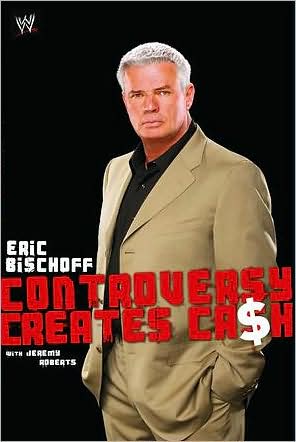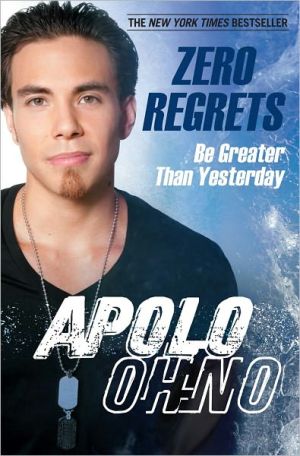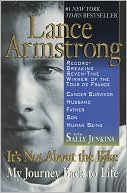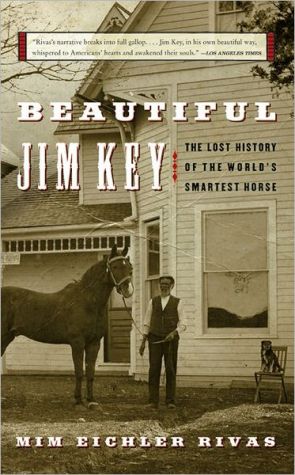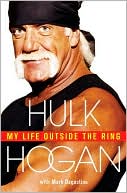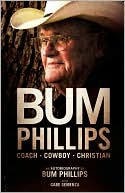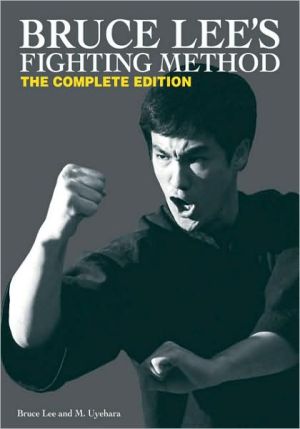Eric Bischoff: Controversy Creates Cash
Eric Bischoff has been called pro wrestling's most hated man. Booed, reviled, and burned in effigy, he's been struck by everything from beer bottles to fists. Though industry critics have scorned his spectacular rise and fall at World Championship Wrestling, Bischoff's influence still resonates. For years, Bischoff kept quiet while industry "pundits" distorted the truth about the infamous Monday Night Wars, basing their accounts on rumors and innuendo. Finally, Bischoff tells what really...
Search in google:
Under Eric Bishoff's watch as president of WCW, the company went head to head with Vince McMahon's WWE and beat them at their own game before WCW itself spectacularly imploded. But by then, Bishoff had made an indelible mark on televised wrestling, producing shows that had appeared more dangerous, more sexy, and more edgy than anything that had come before. He did this to such an extent that in 2002, McMahon seized the chance to bring in his former nemesis as General Manager of RAW; since then, true to form, Bishoff regularly surprises fans with matches that would once have been unthinkable for television. In this revelatory look at his life and career, Bishoff frankly discusses the things he did, both right and wrong, as he helped shape the sports entertainment industry into today's billion dollar business.
Prologue\ East Rutherford, N.J., July 15, 2002: I'm sitting in the back of a stretch limo in the parking lot of Continental Airlines Arena, waiting to make my appearance on a televised wrestling show. I've been on television hundreds of times before, on hundreds of wrestling shows, but tonight is going to be different — very different.\ Tonight I'm appearing on the show I almost put out of business. And the person pulling open the car door to welcome me is the guy I almost forced into bankruptcy: Vince McMahon.\ Could anyone have predicted this day would come? Never! But that's the thing about wrestling. There's a saying in our business: Never say never.\ "How are you feeling?" Vince asks.\ "Great."\ "Nervous?"\ "Not at all. Excited."\ Vince looks at me for a second, like he's not quite sure he believes me. We go over what we're going to do onstage.\ This is only the second time in my life that I've met Vince McMahon face to face. The first was more than a decade before, when he said hello to me after a job interview in Stamford. I didn't get the job. I didn't deserve it.\ The history of pro wrestling might have been very different if I had.\ The funny thing is, I feel as if I really know Vince well. We're like two soldiers back from a war; we've been through the same battles, albeit on different sides.\ "Here's what I'd like you to do," Vince tells me. "When you hear me announce the new general manager of Raw, and you hear your music start to play — come out, acknowledge the crowd, shake my hand, and give me a big bear hug! And milk it for all it's worth...."\ He gets out of the car. Inside the arena, the crowd is hopping. They've been told Raw is getting a new general manager, one guaranteed to shake things up.\ There's an understatement for you.\ If you're a wrestling fan, you probably know that Raw is World Wrestling Entertainment's flagship Monday-night television show. You probably also know that Vince McMahon is the chairman of World Wrestling Entertainment, better known as WWE.\ What you may not know is that almost everything that makes Raw distinctive — its two-hour live format, its backstage interview segments, above all its reality-based storylines — was introduced first on Monday Night Nitro, the prime-time show I created for the TNT Network. For nearly three years, my company World Championship Wrestling, kicked Vince McMahon's ass. Nitro, WCW's flagship show, revolutionized wrestling. The media called our conflict the Monday Night Wars, but it was more like a rout. Nitro beat Raw in the ratings eighty-something weeks running.\ Then Vince caught on to what we were doing, and the real battle began.\ Unfortunately for me, and the wrestling business in general, the fight wasn't really between WCW and WWE, which was called World Wrestling Federation at the time. In fact, the real battle was between WCW and the corporate suits who took over Turner Broadcasting with the merger of Time Warner and then AOL. That was a fight I was never capable of winning, though, being stubborn by nature, I didn't realize it until it was nearly over.\ Stephanie McMahon pops her head into the limo. Stephanie, Vince's daughter and one of the company's vice presidents, has come to take me in to the show.\ Ready? she asks.\ I'm ready.\ Nervous?\ Excited.\ She stares at me a second, probably convinced I'm lying. I'm sure she thinks I'm a train wreck. The auditorium is packed with people who hate my guts, or I should say hate my character's guts.\ Not too many people bother to distinguish between the character I play on television and who I really am. Worse, a lot of people think they know who I am because of what they've read on the Internet or in the "dirt sheets," the newsletters that cover the wrestling business for fans.\ Wrestling fan sites are generally populated by people with too much time on their hands, who have very little real insight into what's going on in the wrestling business. A lot of them create their own stories and realities just to watch other people react to them. As a result of that, there's a lot of misinformation floating around out there about a lot of people, not just me.\ Which is one of the reasons I decided to write this book.\ The truth is, I hate most wrestling books. I read a sentence, a paragraph, sometimes a page, then quit. They don't take a serious look at the enterprise. Most are bitter, self-serving revisionist history at best — and monuments to bullshit at their worst. A lot of the guys who write them seem desperate to have the last word on everything. Rather than telling people what we're really all about, they refight old battles that everyone but them has forgotten. They come off like whiners, complaining about everything.\ That's not me.\ I've had some bumps and bad breaks. Everyone does in life. But pro wrestling for me has been full of good things. I started out as a salesman and then, by necessity rather than ability, became an on-camera talent. I went from that to being chosen, improbably, to head the second largest wrestling promotion in the country. We were a distant second to Vince McMahon's company, bleeding money every year. With hard work and against heavy odds, we became number one. What had been a company generating 10 million in losses on 24 million worth of revenue, became a company with 350 million in sales pumping out over 40 million in profit. Then things went to hell. After a wild roller-coaster ride I ended up back where I had started — as an on-air talent, ironically, with the guy I had been at war with for years.\ And ultimately we became friends.\ Let's go, says Stephanie. You're on in a few minutes.\ We get out of the car and begin walking through the backstage area. My appearance has been a well-kept secret until now, and the looks of shock on the wrestlers' faces as I pass confirms it.\ I can hear the crowd in the arena as I reach the holding area backstage. WWE writers have given me a two-page script to memorize, and the words are bouncing in my head. The funny thing is, I've rarely had to memorize a script before — all these years on camera, I've improvised my lines. But not tonight. The writers for WWE have spent a fair amount of time on this script; my job tonight is to deliver what they want.\ But even before I look at the words, I know what I have to do tonight. I have to find my inner heel. Once I'm out there, the adrenaline will take over, and I'll be fine.\ There's a hush outside. Vince McMahon has come onstage and is about to introduce me.\ Wrestling began in the United States as a sideshow carnival attraction. It thrived and grew because it blended showmanship, unique characters, and illusion. It still does, in some respects. But it's also a business, and a very sophisticated one at that. The business structure and revenue model are extremely complex. No other form of entertainment, quite frankly, combines the different revenue streams and opportunities that WCW had, or that WWE has now. I hope to give you some idea of that complexity in this book.\ What happened to WCW while I was there is as much about business as it is about wrestling. A lot of wrestling fans think WCW unraveled because of things like guaranteed contracts for wrestlers and the decision to give Hulk Hogan creative control over his matches.\ The fact that we may have overpaid some wrestlers was one reason WCW ended up in a position that was difficult to recover from. But it had nothing to do with why WCW failed. If our talent budget was half of what it was, in the end, it would have made no difference. The company failed because of what happened inside Turner after it was bought by Time Warner. Turner's merger with Time Warner, and Time Warner's ultimate merger with AOL, was the single largest disaster in modern business history. WCW was just one of many casualties. There was a lot of collateral damage. Even Ted Turner suffered in the fallout.\ Did I make mistakes? Sure. I'll list a few of the bigger ones here. But I'm tired of hearing things like, Eric Bischoff killed WCW because he overpaid wrestlers and was a Hollywood guy and so on. That's all bull. Take Eric Bischoff out of the equation, and WCW still goes down in flames, maybe even faster.\ What happened to WCW is a cautionary tale. My story isn't just about wrestling and sports entertainment, but about what happens to creative enterprises and individuals when they get caught in the maul of a modern conglomerate and the short-term "meet Wall Street expectations" thinking that's so prevalent today.\ I know I'm not going to convince every reader who picks this book up that what I say is the absolute truth. It's possible that I've remembered some things subjectively or have a very one-sided view of them. Plenty has been written about WCW and my time there. But none of the stories of its demise have come from someone who was there. It's been written by people who were either just making shit up or hearing rumors. I was there, on the front lines. They weren't.\ I'm on. I walk out toward the man who was my most bitter enemy for four or five years. We embrace.\ That rumbling beneath your feet, I tell Vince, is a whole lot of people turning over in their graves.\ Copyright © 2006 by World Wrestling Entertainment, Inc. All Rights Reserved.
Contents Prologue "Give Me a Big Hug" 1 Throwing Rocks 2 Ken Doll 3 WCW: The Early Days 4 Running the Show 5 Hulk Hogan 6 Prime Time 7 The Revolution Takes Hold 8 Too Much 9 Unraveling 10 Return to Hell 11 The Art of the Non-Deal 12 Meet the Devil Epilogue Never Say Never
